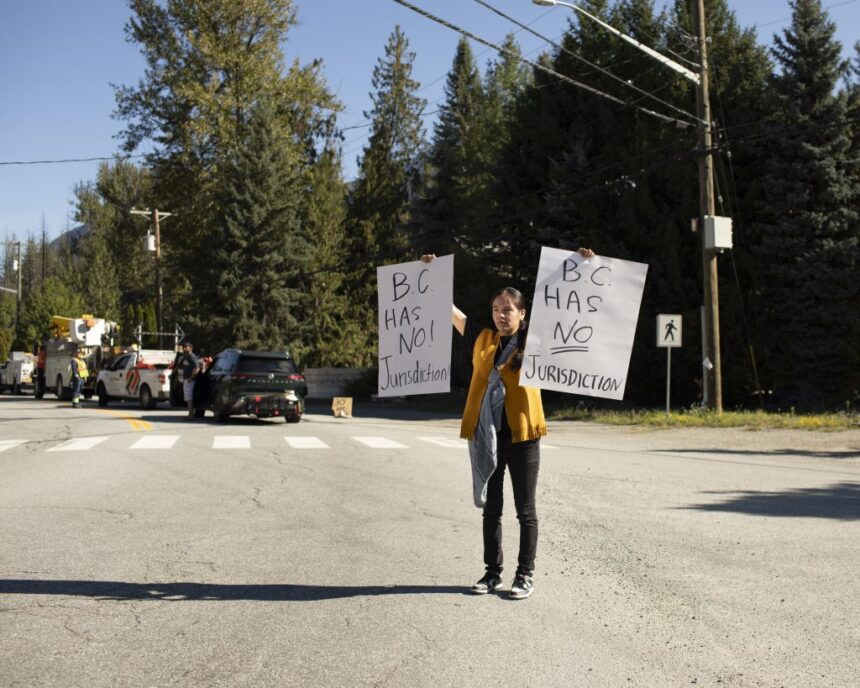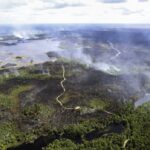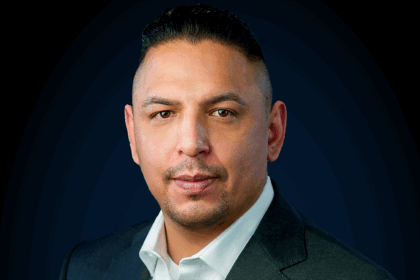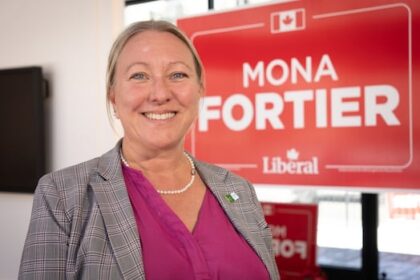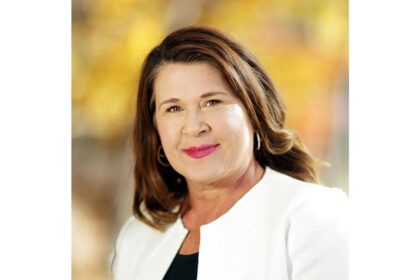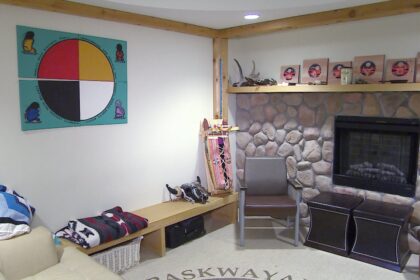Líl̓wat and N’Quatqua leaders say a provincial decision on ‘Joffre Lakes Park’ highlights broader issues around respecting Indigenous rights On Friday, August 21, the Líl̓wat and N’Quatqua nations held a ‘peaceful ceremony,’ which brought traffic to a halt on highway 99, stressing the need for Indigenous-led land stewardship at Pipi7íyekw (Joffre Lakes Park). Standing on the highway amid the mountain scenery near Pipi7íyekw (Joffre Lakes Park), Casey Gonzalez recalls how the trails have changed over the years. “When I went up there as a child, you sometimes had to turn sideways to squeeze through the foliage,” says Gonzalez, who is director of lands and resources for the Líl̓wat Nation. Today, the path is so broad that BC Parks has installed rope barriers to dissuade visitors from trampling further off-trail. The B.C. Ministry of Environment and Parks confirmed the ropes are set up in a number of areas, including at the trailhead, to deter people from circumventing a day-use pass checkpoint. Last Friday, on August 21, Gonzalez was part of a peaceful ceremony and roadblock hosted by the Líl̓wat and N’Quatqua nations that cut off access to Highway 99 through “Mount Currie” for more than two hours. Drummers and singers from the Líl̓wat and N’Quatqua nations gathered during the ceremony and peaceful roadblock calling for a longer closure of Pipi7íyekw (Joffre Lakes Park). They had gathered to challenge “British Columbia’s” decision to close Pipi7íyekw — a popular tourist destination — for only one month this fall, from September 2 to October 2. The nations had asked instead for a closure beginning August 22, to allow for assessment and stewardship of the land. “It’s time for Pipi7íyekw to rest,” Gonzalez says. In 31-degree heat, a large circle of Líl̓wat, N’Quatqua, and their friends — many wearing orange shirts and regalia — gathered at the Lillooet Lake Road intersection holding signs that declared, “B.C. has no jurisdiction,” while community members shared thoughts about Pipi7íyekw and its significance to their sovereignty. “The nations are tired,” Gonzalez adds. “They’re tired of being disregarded, and our rights being disregarded in the name of tourism and recreation.” Casey Gonzalez, director of lands and resources for the Líl̓wat Nation, speaks to media during the ceremony. She’s calling for “open-minded listening” and an end to the “paternalistic mentality” from the province of “British Columbia”. ‘That was before Instagram and selfies’ Two days before the ceremony, the province announced the short-term closure of the park, citing a “balance” between cultural practices, conservation goals and public access. However, Gonzalez says the shortened closure doesn’t offer enough time to plan for the assessment and harvest different medicines and foods, while reconnecting with their territory. With nearly 3,000 community members between the two nations, Líl̓wat and N’Quatqua are part of the larger St’át’imc people, whose territory spans much of the southern Interior. Gonzalez told IndigiNews the nations were hoping to use the time from August 22 to carry out a cumulative impact assessment of Pipi7íyekw “to really see the full picture of what damage is being done with the overuse and over-visitation,” she says. “We’re unable to do that when there’s 500 plus people there every single day.” Vehicles were backed-up for nearly 10 kilometers between “Mount Currie” and “Pemberton” during the ceremony, as well as towards Lillooet. “If we impede the general public, they usually turn on us,” said Skalulmecw (Dean Nelson), elected chief of the Líl̓wat Nation. “We want you to question the government.” The rise of social media and travel bloggers have caused a popularity spike for this once-peaceful park. The park has consistently ranked as one of the province’s most heavily visited natural sites. In 2019, it drew nearly 196,300 visitors, reflecting a 222 per cent increase since 2010. Skalulmecw (Dean Nelson), elected chief of the Líl̓wat Nation, also remembers the days before there was such hype for the park. He says it was quiet and remembers fellow Líl̓wat community members working for the park. “That was before Instagram and selfies,” he says. Gonzalez says it’s because of the park’s popularity that the nations are making a stand. “Our entire territory is overrun and feeling the pressures of the ongoing expansion of recreational trails in our Alpine, which are affecting the habitat of the animals and our hunting grounds, berry picking and mushroom grounds.” A dancer at the centre of the circle as the ceremony concludes, surrounded by singers and drummers under the 31 degree heat, intensified by the black asphalt. UNDRIP affirms rights to decision-making In December 2018, the two nations and “British Columbia” signed a collaborative agreement to work together to address the long-standing mismanagement of Pipi7íyekw. In 2023, the nations formally requested exclusive access to carry out land stewardship and cultural practices throughout August and September. When that request was denied, they temporarily blocked park access for three days in an act of resistance. The following year, the province permitted 52 days of closures across three periods — a pattern that has repeated in 2025. “The province acknowledges the nations had requested additional closure dates,” said a statement from the province on Aug. 19, in part. “The current number of total closure dates for the 2025 season is consistent with last year when a mutual agreement was established with the nations to have three temporary closure periods. The dates also ensure public access to the park during the Labour Day weekend.” In a joint statement, Líl̓wat and N’Quatqua said the province’s actions “run directly counter to UNDRIP,” which “B.C.” has written into law, and conflict with Supreme Court of Canada rulings on Indigenous Title and Rights, as well as Canada’s constitutional commitments. A Líl̓wat Nation flag sways back and forth to the rhythm of the drums. “The province’s-imposed dates are a fraction of the schedule advanced by our nations and represent yet another unilateral decision that ignores our governance, our laws, and our rights,” reads the two nations’ statement. Gonzalez says the Líl̓wat Nation is calling for “open-minded listening” and an end to the “paternalistic mentality” that allows the province to decide what it is comfortable with in advancing reconciliation. “The nations today are stating this is B.C.’s opportunity to really show that they are committed to UNDRIP and they are committed to BCDRIPA,” she says. Article 18 of the United Nations Declaration on the Rights of Indigenous Peoples (UNDRIP) affirms that Indigenous peoples have the right to participate in decision-making on matters affecting their rights, through their own institutions. For the Líl̓wat and N’Quatqua, that includes determining how Pipi7íyekw is stewarded and when access should be restricted for cultural and ecological purposes. By sidelining those decisions, they argue, the province is not only disregarding their authority, but also falling short of its commitments under international law. A road cyclist, unaware of the ceremony ahead, is stopped by police and told to walk. Community witnesses ‘full damage’ of tourism Holding the ceremony and roadblock in “Mount Currie” carried particular weight — it’s the gateway to Pipi7íyekw, and anyone travelling to the park must pass through the community. The town is home primarily to Líl̓wat people, most of whom live on Mount Currie Indian Reserve No. 6 — the central reserve of the Líl̓wat Nation and one of the largest First Nations communities in the province.Gonzalez says community members witness the “full damage” of Pipi7íyekw tourism because all the traffic funnels directly through town — a community with no sidewalks for pedestrians. She pointed out that just weeks ago, a helicopter medic had to be dispatched to rescue a visitor who was unprepared for the hike. With emergency services stretched thin across the corridor from Whistler to Pipi7íyekw, she said, “visitors end up taking resources away from the community.” Skalulmecw says for many people — who spend their time trying to slow the traffic down through their community — the speeding and dangerous driving feel like a “personal attack”. “It’s just really frustrating,” he told IndigiNews, glancing toward the singers and drummers keeping rhythm in the background. Skalulmecw (Dean Nelson), elected chief of the Líl̓wat Nation, believes there needs to be more education about the Indian Act, dispossession of land, and conditions of life on reserve. The public response is another issue — after the province announced the short-term closure on August 19, a wave of online backlash filled Facebook and TikTok feeds, including racist comments. Members of the Líl̓wat Nation say this backlash is indicative of how little many “British Columbians” understand about the reasons for the closure of Pipi7íyekw, or the ongoing impacts of land dispossession. In response to a Facebook post by the community organization “Vancity Vibe” announcing the park’s closure, roughly 2,000 comments expressed outrage of the public’s exclusion from the park — including a number that were openly racist. “I was told about some of them,” says Skalulmecw, “I have to not be on there because of that.” Skalulmecw says that the treatment of First Nations needs to change. “We’re always on the receiving end of things,” he says. Pipi7íyekw is an example of the many areas within Líl̓wat and N’Quatqua’s territory, says Gonzalez, where Indigenous people have been disconnected from for generations. There are no sidewalks through “Mount Currie”. He says that the public doesn’t see the vehicles speeding through town and the “near misses” endangering community members. “It’s just frustrating,” he said. During one of the closures earlier this year, Gonzalez’s mother visited Pipi7iyekw for the very first time. “She loved it and felt proud to be there, enjoying some space to enjoy quiet time,” says Gonzalez. When asked whether the closures would harm the local tourism industry, Gonzalez pointed to the many other trails, lakes, and recreational areas in the region. Skalulmecw agrees. The only business in Mount Currie owned by Líl̓wat is the local gas bar, he says. Though Lílw̓at has just purchased land on the main road adjacent to the gas bar which the nation intends on developing for housing and stores. “Otherwise, there’d be another business that pops up here and we’d be adding to their success,” he says. Natalie Langman, a Pemberton resident, says that similarly, Pemberton doesn’t rely on tourism. “We’re a farming and business community,” she says. “I think if you asked anyone in Pemberton, they would say that they they stand with Líl̓wat and N’Quatqua 100 per cent.” Mayor Mike Richman of the Village of Pemberton, who was unable to attend the ceremony, told IndigiNews in an email that Pemberton supports the Lílw̓at Nation and N’Quatqua “in their call for the province to engage in meaningful and respectful dialogue, in the spirit of true reconciliation.” “While we recognize the impact of Pipi7íyekw as a tourism asset, we also acknowledge the deep importance that it holds for the Lílw̓at and N’Quatqua people, and the need to have a better outcome through genuine dialogue.” Patrick Weiler, Member of Parliament for the region, was invited to share a message at the ceremony. “I’m here to be a voice and to support the nations in your work, and to be a partner in building a better future where we can walk forward on the right path,” he says. Skalulmecw (Dean Nelson) speaks during the two hour ceremony. ‘We’re not doing this to exclude people’ Skalulmecw believes that the general public lacks understanding about the Indian Act and the reality of life on reservations. “They don’t understand the treatment of First Nations peoples,” he says. Generations of colonial policies, from the Indian Act to underfunded infrastructure, and the lasting impacts of residential “schools,” have created conditions that make life on reserve harder. Communities face challenges like long-term water advisories, overcrowded housing, and gaps in healthcare and culturally appropriate education. Basic services in Kwetsa7 (Mount Currie 2) remain a concern — a “do not consume” water advisory has been in place for the Líl̓wat reserve since July 2019. “We can’t even drink the water here — people don’t realize,” says Skalulmecw. “It’s just one small piece of what’s happening to First Nations.” Gonzalez hopes that Friday’s ceremony, and the nation’s reconnection periods, will provide an opportunity for education. “We’re not doing this to exclude people,” said Gonzalez. “We’re doing this to protect our lands and ensure that Pipi7íyekw is here for future generations and not destroyed by overuse.” South of the Lillooet Lake Road intersection, a home displays children’s handprints and hearts at a pedestrian crosswalk. With no side walks at “Mount Currie,” community members often step in to slow traffic, for the safety of their neighbours. When asked what can be expected between now and the province’s September 2 closure, Gonzalez says it’s up to the communities. “If they feel a continued disrespect from the province, I think there’s very likely going to be more demonstrations, more voices raised,” she says. This isn’t the first time the Líl̓wat have used roadblocks as a form of demonstration. Skalulmecw recalls attending a roadblock in 1975 to protect local salmon runs. “I was just a young kid back then,” he said, remembering how the Nation rallied to defend the river. Fifteen years later, in 1990, the Líl̓wat blocked the road again, this time in opposition to logging and other resource extraction in their territory. The action led to more than 60 arrests, including Skalulmecw, who spent 30 days in the notorious Oakalla Prison in “Burnaby.” “Roadblocks are always on your mind,” he added. “Because when you’re backed up, what else do you have, right?”
Thursday, 5 Feb 2026
Canada – The Illusion
Search
Have an existing account?
Sign In
© 2022 Foxiz News Network. Ruby Design Company. All Rights Reserved.
You May also Like
- More News:
- history
- Standing Bear Network
- John Gonzalez
- ᐊᔭᐦᑊ ayahp — It happened
- Creation
- Beneath the Water
- Olympic gold medal
- Jim Thorpe
- type O blood
- the bringer of life
- Raven
- Wás’agi
- NoiseCat
- 'Sugarcane'
- The rivers still sing
- ᑲᓂᐸᐏᐟ ᒪᐢᑿ
- ᐅᑳᐤ okâw — We remember
- ᐊᓂᓈᐯᐃᐧᐣ aninâpêwin — Truth
- This is what it means to be human.
- Nokoma


